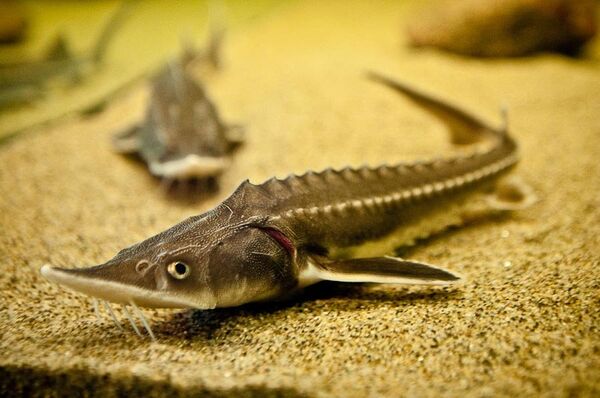MOSCOW, December 27 (RIA Novosti) – Russia and all other countries that border the Caspian Sea have agreed to stop fishing black-caviar-producing sturgeon in the area because the fish is on the brink of extinction, Russian officials said Friday.
The ban, which was also agreed with Kazakhstan, Iran, Azerbaijan and Turkmenistan, will go into effect on January 1 for one year and may be prolonged for up to five years, Russia’s Federal Fisheries Agency said.
Russia already banned commercial sturgeon fishing in the Caspian in 2002, but still permits a minimal annual catch.
Female sturgeon, including the prized beluga, are among the most valuable fish and are harvested for their black roe, sold internationally for about $2.50 a gram.
An agreement on sustainable fishing in the Caspian is now being finalized for signing by the heads of all five states at a summit next year in the southern Russian city of Astrakhan, said a spokesman for Russia’s fishing agency.
Throughout the 20th century, the Caspian Sea provided more than 90 percent of the world’s annual sturgeon catch, but overfishing after the collapse of the Soviet Union has decimated the species.
Repopulation is expected to be slow because female sturgeon can take decades to reach sexual maturity. However, individual sturgeons have been known to live for more than 100 years.


